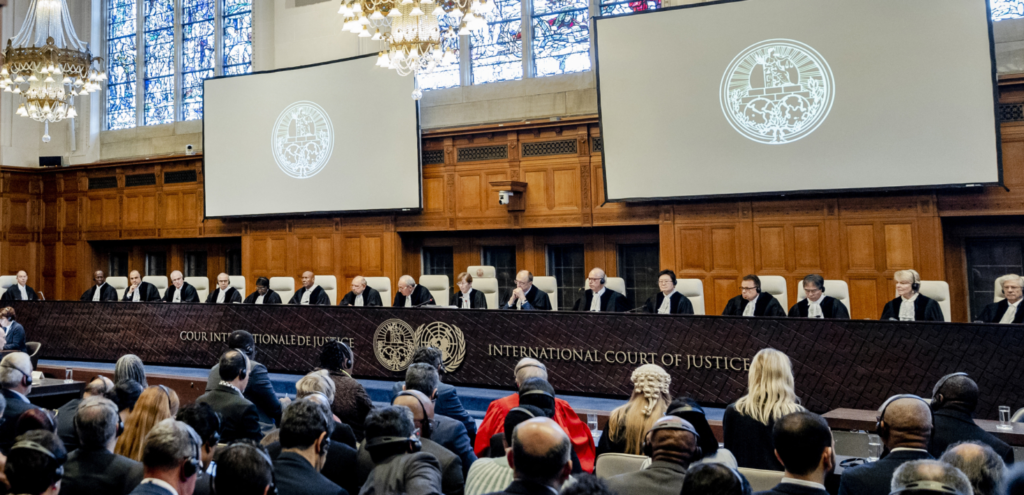A Court’s Call for Humanity: The ICJ Ruling on Genocide Prevention in Gaza
The International Court of Justice (ICJ) recently issued a significant interim ruling in the case brought by South Africa against Israel, focusing on the ongoing conflict in Gaza. The court’s order, demanding that Israel take all measures within its power to prevent acts of genocide, represents a landmark moment in international law and a critical juncture in the Israeli-Palestinian conflict. We will explore the implications of this ruling, its context within the broader conflict, and the challenges that lie ahead.

A Landmark Ruling on Genocide Prevention
South Africa’s case before the ICJ alleges that Israel’s actions in Gaza constitute genocide, a grave violation of international law. While the ICJ has not yet made a final determination on the question of genocide, its interim ruling acknowledges the plausibility of the claims and underscores the urgency of the situation. The court’s order places a legal obligation on Israel to not only refrain from genocidal acts but also to actively prevent others from committing such acts. This includes taking measures to ensure that its military and other agents do not engage in actions that could be construed as genocidal.
Addressing the Humanitarian Crisis
The ICJ’s ruling extends beyond simply prohibiting genocidal acts. It also calls on Israel to ensure that humanitarian assistance reaches civilians in Gaza. This is a crucial component of the ruling, recognizing the dire humanitarian crisis that has unfolded in the region. The ongoing conflict has severely restricted the flow of essential goods, including food, water, and medicine, leaving the civilian population in a precarious situation. The court’s demand for unimpeded humanitarian access highlights the international community’s concern for the well-being of the people of Gaza.
A Victory for International Law
The significance of this ruling cannot be overstated. It represents a powerful assertion of international law and the principle that no state, regardless of its power or political standing, is above the law. The ICJ’s intervention sends a clear message that allegations of genocide must be taken seriously and investigated thoroughly. Furthermore, the ruling provides a measure of hope for the Palestinian people, who have long sought justice and accountability for the suffering they have endured.
Challenges to Enforcement
However, the ICJ’s ruling also faces significant challenges. Enforcing the court’s orders is a complex matter, as the ICJ lacks direct enforcement mechanisms. Its authority relies on the willingness of states to comply with international law and the pressure of international public opinion. Israel has already indicated its disagreement with the ruling, raising concerns about the extent to which it will be implemented.
An Uncertain Path Forward
The path forward is uncertain. The ICJ’s ruling is an interim measure, and the court will continue to hear the case brought by South Africa. It remains to be seen whether Israel will fully comply with the court’s orders and whether the international community will be able to exert sufficient pressure to ensure compliance. Regardless of the immediate outcome, the ICJ’s intervention has brought the issue of potential genocide in Gaza to the forefront of the international agenda, marking a crucial moment in the ongoing struggle for justice and peace in the region. The ruling serves as a stark reminder of the devastating consequences of conflict and the importance of upholding international law to protect human lives and prevent atrocities.




















